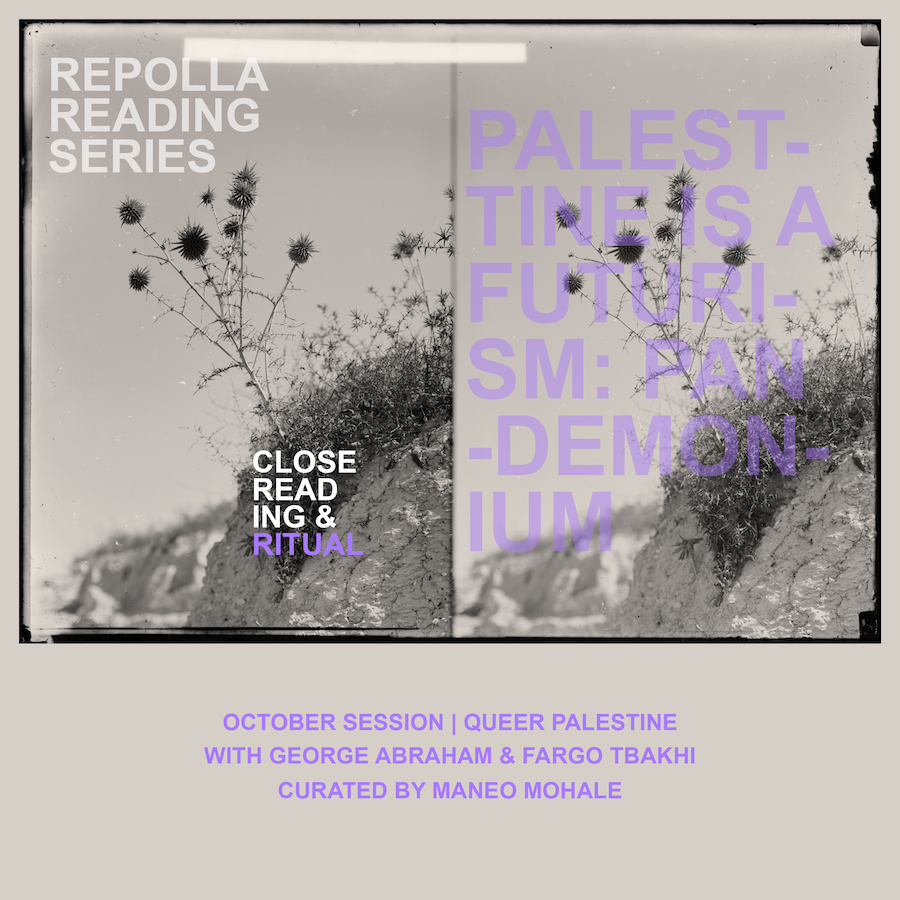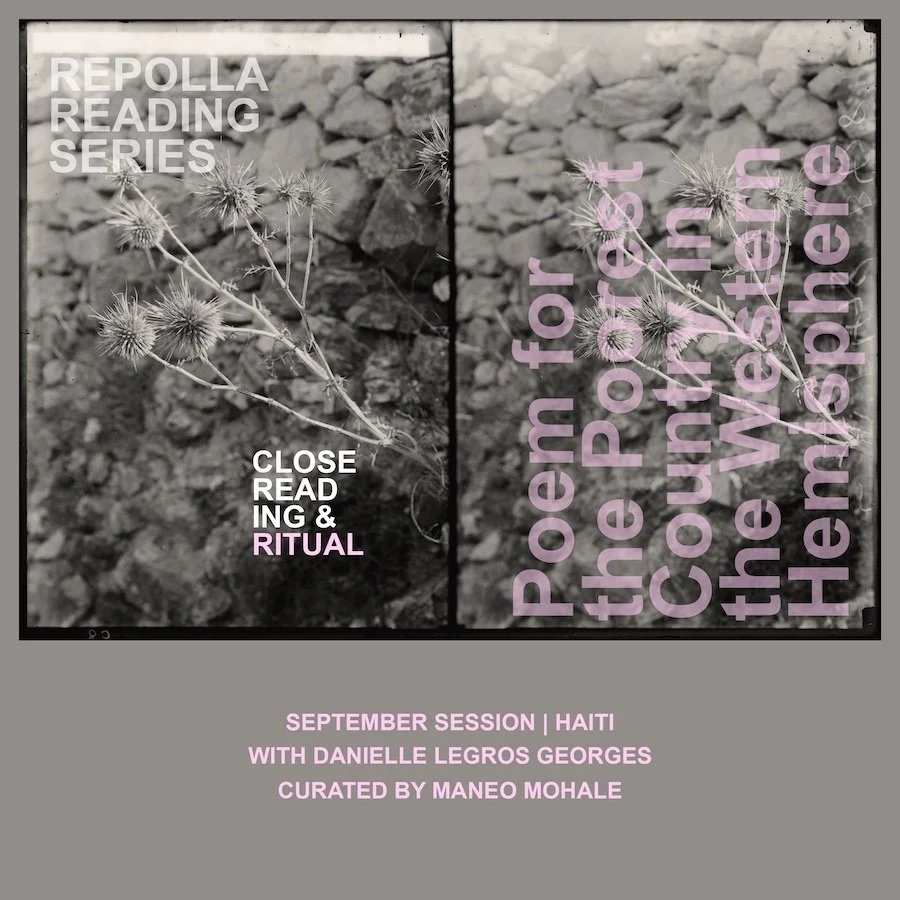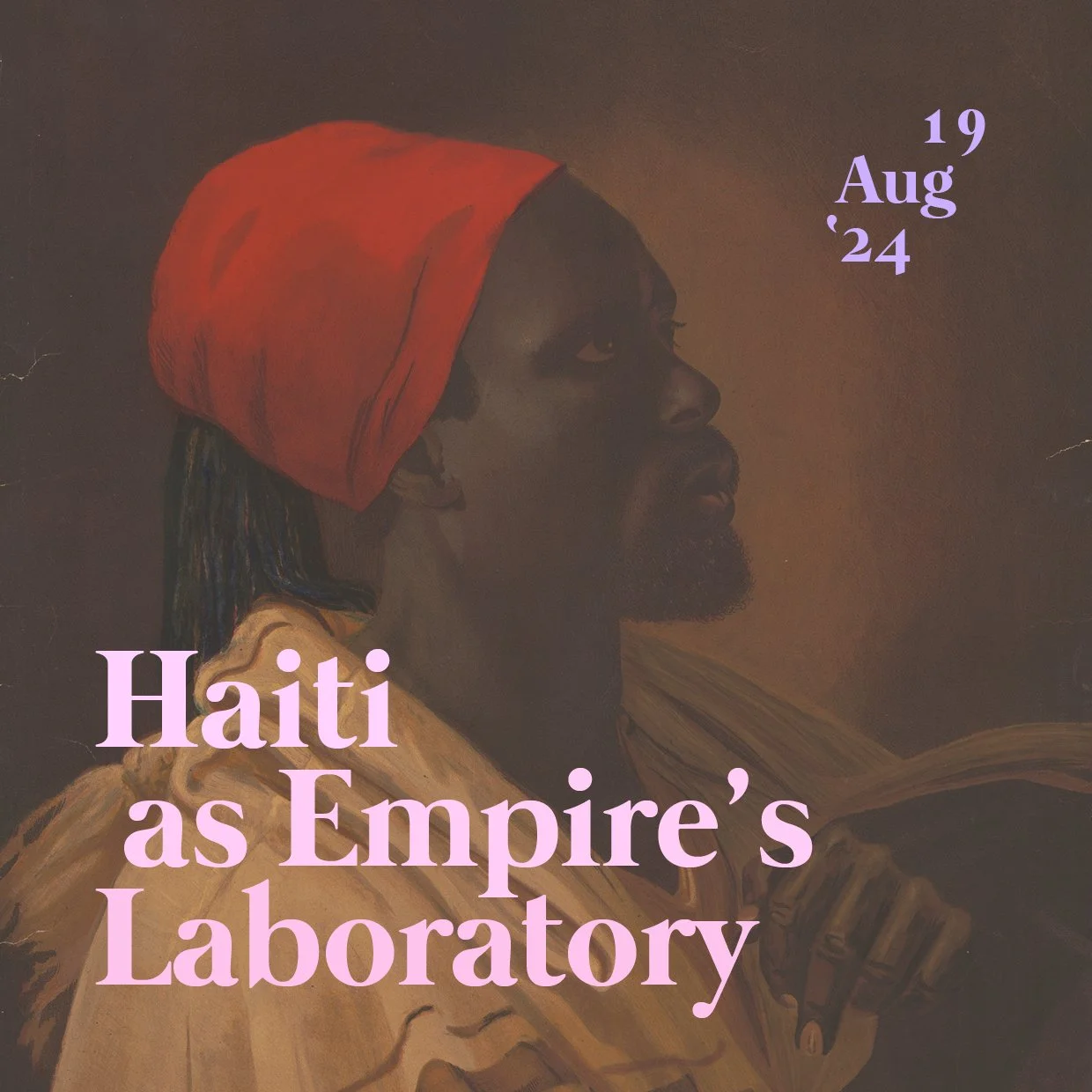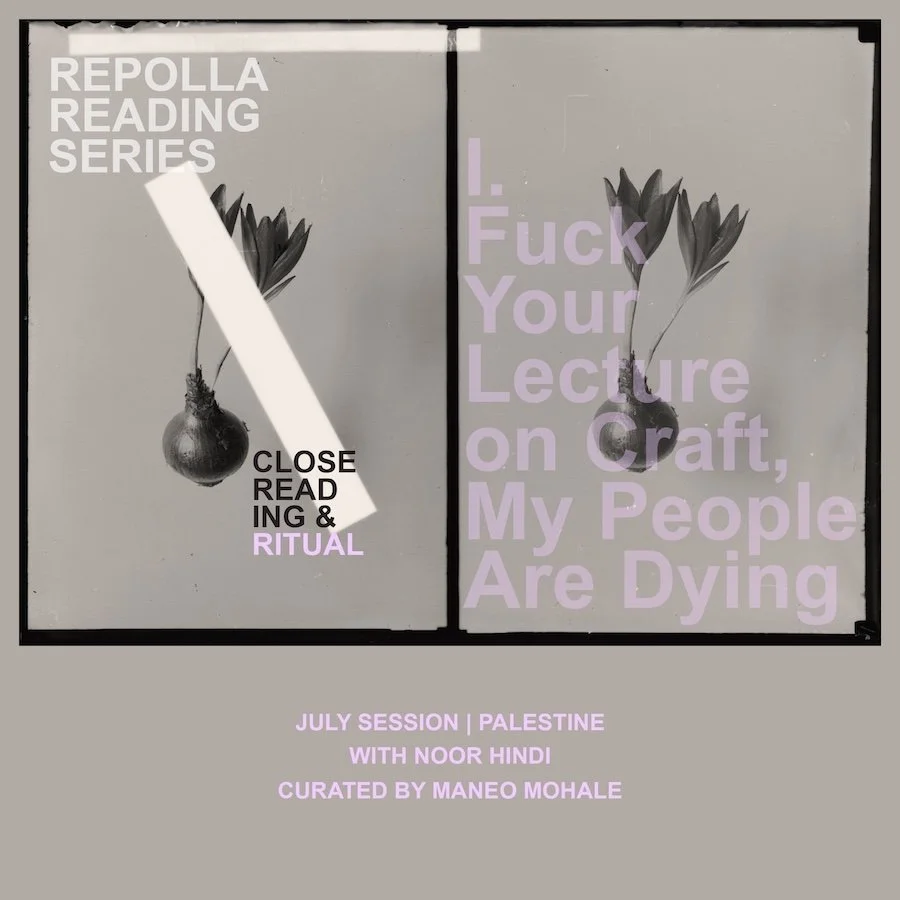
Echoes in the Sublime
URGENT/EMERGENT Seminar Series Presents: Echoes in the Sublime – Attentional Infrastructures, the Anthropocene, and African Time
The Machine and the Margins
URGENT/EMERGENT Seminar & Conversation Series
On 15 May 2025, Professor Victoria Collis-Buthelezi, Director of the Johannesburg Institute for Advanced Study (JIAS) and Dr. Anaïs Nony, Senior Researcher at JIAS on “AI & Life Matters”, launched the URGENT/EMERGENT seminar and conversation series with an event titled “The Machine and the Margins”. Literary and digital scholars, Dr. Carrie Timlin and Dr. Colette Gordon presented their research on AI-resistant teaching and learning in the wake of generative Artificial Intelligence in higher education.
The seminar opened with a welcome from Prof Collis-Buthelezi and Dr Nony. Referencing Judith Butler’s recent talk in South Korea on “Democracy and the Humanities”, Collis-Buthelezi invited attendees to understand the seminar series as about the relationship between the humanities, democracy, and how we might “reenchant the human’s relationship to study in light of AI”. Nony offered us a quick history of AI from the 1920s to the present, reminding us that while “2/3 of the world has access to the internet and generative AI, 1/3 is still without access to safe water”.
Drs. Timlin and Gordon revealed how they used social annotation in their courses to ‘hack’ their students’ plagiarism of assessments. For Gordon, “the essay invites students to plagiarise”. ChatGPT and other forms of generative AI simply enhance students’ toolkits for plagirising, but Gordon argued that the problem is in the type of assessment. Rather, she suggested that the future of humanities teaching and scholarship lies in a return to reading. “Deep reading is hard,” she said, “but too often universities invest in writing programmes and not reading programmes.
But students cannot write original content if they cannot read and understand what they are reading”.
When asked what the implications of their research are on the understanding that the act of writing is transformative of the human self, Dr Timlin responded that generative AI “disrupts the idea of writing as a mark of individual intelligence or genius”. She saw generative AI as pushing us toward collective knowledge production and reemphasised what their “classroom pedagogy of social annotation — students reading and writing in ‘the margins’ of texts — offers by way of the relationship between reading and writing”.
Both scholars pointed out that in the age of AI, lecturers’ ethical admonishment of students about plagiarism is increasingly less impactful than their classmates asking them for “relevance” in online and in-class discussions.in the face of generative AI, Timlin and Gordon pointed us back to reading, knowledge making, and writing as collective, social activities.
This seminar was recorded and will be viewable on the JIAS YouTube channel.
Upcoming events in the series include Professor Mohammad Shabangu on attentional infrastructures and African time (Colby College), Dr. Phokeng Tshepo Setai on Black curatorial practices (Zeitz Mocaa), Professor Efua Prah on intercontinental African migration politics (University of Johannesburg), Professor David Scott on revolution (Columbia University, US), Professor Ruchi Chaturvedi on the violence of democracy (University of Cape Town, SA), and Philosopher Sara Baranzoni on the Anthropocene, artificial intelligence and digital art.
Seminars take place on Thursdays from 3pm to 5pm (SAST) URGENT/EMERGENT is a public seminar and conversation series at the Johannesburg Institute for Advanced Study (JIAS) microcampus in Westdene, Johannesburg as well as online. To stay informed about upcoming seminars in the URGENT/EMERGENT series, sign-up for our mailing list or follow our programming via https://www.jias.joburg.
URGENT/EMERGENT Seminar Series was established in 2025 at the Johannesburg Institute for Advanced Study to provide a research platform for debates on the political, historical, technological and cultural sources of 21st century societal developments. Hosted by Prof Victoria Collis-Buthelezi and Dr Anaïs Nony, it is rooted in JIAS’s commitment to critical, transdisciplinary thought and convenes thinking around key emerging, urgent questions of our time such as climate, AI, democracy, violence, war, genocide, and freedom.

Repolla Reading Series, Session V
“Sudan, TX”, with Safia Elhillo
House C, in the cosy lounge
Johannesburg Institute for Advanced Study (JIAS)
Join us in-person for Session V, with Sudanese-by-way-of-Washington, DC. poet Safia Elhillo (joining remotely) and South African poet and series curator Maneo Mohale. As space is extremely limited (max 20) RSVP is essential. Participants are asked to enbgage with the poem in advance.
- - -
JIAS is thrilled to announce the first iteration of the Repolla Reading Series - (Close)Reading & Ritual’ - curated by feminist writer, poet and RGC Research Associate Maneo Mohale.
In each of the five sessions (July-October) participants will engage with the work of one poet, and one poem, from one region currently affected by genocide and imperialist violence. In these close gatherings, we hope to foster rituals of solidarity, care, rage, hope and imagination within the otherwise spaces poetry affords us. Each session will be further supported by a curated selection of transdisciplinary resources and associated practices of black-being-well.
Click here for more information.

Repolla Reading Series, Session IV
“PALESTINE IS A FUTURISM: PANDEMONIUM”, with Fargo Tbakhi & George Abraham
House C, in the cosy lounge
Johannesburg Institute for Advanced Study (JIAS)
Join us in-person for Session IV, with queer Palestinian poets and performance artists Fargo Tbakhi & George Abraham (joining remotely) and South African poet and series curator Maneo Mohale. As space is extremely limited (max 20) RSVP is essential. Participants are asked to engage with the poems in advance.
- - -
JIAS is thrilled to announce the first iteration of the Repolla Reading Series - (Close)Reading & Ritual’ - curated by feminist writer, poet and RGC Research Associate Maneo Mohale.
In each of the five sessions (July-October) participants will engage with the work of one poet, and one poem, from one region currently affected by genocide and imperialist violence. In these close gatherings, we hope to foster rituals of solidarity, care, rage, hope and imagination within the otherwise spaces poetry affords us. Each session will be further supported by a curated selection of transdisciplinary resources and associated practices of black-being-well.
Click here for more information.

In conversation: David Scott & Black Intellectual Praxes
David Scott, in conversation with Black Intellectual Praxes
with vinyl selections by Nombuso Mathibela & friends
The Library of Things we Forgot to Remember
44 Stanley Avenue
Don’t miss this community gathering and listening session at the Library of Things we Forgot to Remember! The Black Intellectual Praxes collective will be in dialogue with Prof Scott, unpacking his intellectual project and method of scholarship, and its impact on young intellectuals in the Black Radical Tradition. With vinyl selections from Nombuso Mathibela and friends, the session will extend work started in the Radical Praxes Reading Group. This is an ongoing conversation, grounded in multiple temporalities and trans-generational labour of the Black Radical Tradition. This coming together marks a significant moment in radical Black journal publishing, as the collective prepares to launch its first edition of the Black Praxes Journal - a project in many ways inspired by the emergence, actualisation and continuity of Small Axe, founded by Scott in 1997. Those attending are asked to engage with the set readings in advance (download)
Watch the video! (forthcoming)

"On Walter Rodney" - with David Scott
Public lecture with David Scott
Facilitated by Prof Victoria Collis-Buthelezi
JIAS, 1 Tolip Rd, Westdene
Join us with Jamaican academic, curator and Small Axe founding editor Prof David Scott for a deep dive into the radical political thinking and praxis of Walter Rodney, grounded in his seminal text, How Europe Underdeveloped Africa (1972). We’ll be thinking through context, how the text has travelled, and how it registers now, as we navigate the afterlives of colonisation and apartheid and a global order of anti-Black violence.
Those joining for the lecture are encouraged to engage in advance with Prof Scott’s text, Between Revolution and Repair: How Europe Underdeveloped Africa in a Caribbean Intellectual Tradition.
David Scott is the Ruth & William Lubic Professor and Chair of the Department of Anthropology at Columbia University. He is also the founder and editor of Small Axe and director of the Small Axe Project. Scott is currently completing a book (tentatively titled), Irreparable Evil: New World Slavery in Moral History and working on a biography of Stuart Hall.
Watch the video! (forthcoming)

Repolla Reading Series, Session III
“Poem for the Poorest Country in the Western Hemisphere”, with Danielle Legros Georges
House C, in the cosy lounge
Johannesburg Institute for Advanced Study (JIAS)
Join us in-person for Session III, with Haitian American, Black poet, translator, and editor Danielle Legros Georges (joining remotely) and South African poet and series curator Maneo Mohale. As space is extremely limited (max 20) RSVP is essential. Participants are asked to engage with the poem and set readings in advance.
- - -
JIAS is thrilled to announce the first iteration of the Repolla Reading Series - (Close)Reading & Ritual’ - curated by feminist writer, poet and RGC Research Associate Maneo Mohale.
In each of the five sessions (July-October) participants will engage with the work of one poet, and one poem, from one region currently affected by genocide and imperialist violence. In these close gatherings, we hope to foster rituals of solidarity, care, rage, hope and imagination within the otherwise spaces poetry affords us. Each session will be further supported by a curated selection of transdisciplinary resources and associated practices of black-being-well.
Click here for more information.

Queer Photo Practices
Conversation & Sharing Session with Haneem Christian & friends
“Holding community as sacred, divine and critical to (queer) photographic ethics” - Haneem Christian
Join us in the Market Photo Workshop gallery for a conversation and sharing session around queer photographic modalities and community practices with artist Haneem Christian. Joining Haneem will be RGC curator Danielle Bowler and Karin Tan, Culture & Media Coordinator at GALA Queer Archive. Light refreshments will be served :)
This session is collaboratively presented by GALA Queer Archive and the Centre for the Study of Race, Gender & Class. Learn more about GALA here
Haneem Christian (b. 1994) is an artist and filmmaker from Cape Town, South Africa. Working through lens-based media, their practice centres and archives Queer and Pan-African narratives, histories and storytelling – holding community as sacred, divine and critical to their photographic ethics. Christian has exhibited in notable exhibitions such as International Cape Town Art Fair, 1-54 New York, AKAA, Latitudes, Unseen photo Fair, and Taylor Wessing at the National Portrait Gallery, London. In February 2022, Christian was announced as the winner of the Pride Photo Award 2022. After completing a residency with Magnum Photos, Christian was awarded the National Portrait Taylor Wessing Portrait Award 2022. Bubblegum Club Magazine states, “Haneem is one of the leading forces of the South African future”.
This programme forms part of the exhibition, Reflections, on Black girlhood, curated by Danielle Bowler.
Click here for more information on the exhibition.

REFLECTIONS: on Black girlhood
Exhibition opening
Join us with our participating artists for the opening of Reflections, on Black girlhood at the Market Photo Gallery, with sounds from Nombuso Mathibela.
Market Photo Workshop
138 Lilian Ngoyi St, Newtown
- - -
Woven into this group exhibition are reflections on Black girlhood from five contemporary South African artists across multiple generations. Collectively they sing “a black girl’s song” (to cite Ntozake Shange), exploring themes of memory, biography, performance, the body, community, care and “being in public”, through creative practices of waywardness, play and (insistently) joy.
Curated by Danielle Bowler
Participating artists: Haneem Christian, Ruth Motau, Thenjiwe Niki Nkosi, Motlhoki Nono & Lebogang Tlhako.
Learn more about the exhibition programme here

Haiti as Empire’s Laboratory
A Workshop with Dr Jemima Pierre
JIAS Seminar Room
1 Tolip St, Westdene
“The uses and abuses of the first Black republic as a testing ground of imperialism
offer stark warnings. Haiti still struggles to be free.”
Join us for a workshop on ‘Haiti as Empire’s Laboratory’ with Professor Jemima Pierre. In this small group session, we trace the coordinates of the current and ongoing crisis in Haiti, as ‘a crisis of imperialism’ and explore what we mean when we say ‘Free Haiti’.
Beyond the singular study of the Haitian Revolution in isolation, Professor Pierre will draw on her work, ‘An Archive of Occupation’, to draw a timeline of key moments from 2004 to the present, that ask not to be understood as singular happenings, but as a historically rooted series of connected events that has led to ‘the complete destruction of the Haitian state’. This includes 2004’s coup d’etat, backed by the involvement of the United States, Canada and France – and life under occupation since then.
Framing the present crisis, against decontextualised ideas of violence and sudden happenings, we contextualise it within Haitian’s fight for sovereignty and the restoration of their democracy, while considering the links between South Africa, Haiti, Kenya and Palestine, and the need for transnational solidarity and our interconnected liberation.
Participants are asked to engage with the set readings in advance.

Repolla Reading Series, Session II
“A Burial Hymn”, with Sarah Lubala
House C, in the cosy lounge
Johannesburg Institute for Advanced Study (JIAS)
Join us in-person for Session II, with Congolese-born, Johannesburg-based poet Sarah Lubala and South African poet and series curator Maneo Mohale. As space is extremely limited (max 20) RSVP is essential. Participants are asked to engage with the poem and set readings in advance.
- - -
JIAS is thrilled to announce the first iteration of the Repolla Reading Series - (Close)Reading & Ritual’ - curated by feminist writer, poet and RGC Research Associate Maneo Mohale.
In each of the five sessions (July-October) participants will engage with the work of one poet, and one poem, from one region currently affected by genocide and imperialist violence. In these close gatherings, we hope to foster rituals of solidarity, care, rage, hope and imagination within the otherwise spaces poetry affords us. Each session will be further supported by a curated selection of transdisciplinary resources and associated practices of black-being-well.
Click here for more information

Izimpabanga Zomhlaba
Book Launch: isiZulu translation of “The Wretched of the Earth”
Book Circle Capital
27 Boxes, Melville
Gather with us at Book Circle Capital for the launch of “Izimpabanga Zomhlaba” - Makhosazana Xaba’s groundbreaking isiZulu translation of Franz Fanon’s seminal work, “The Wretched of the Earth”. Joining Makhosazana in conversation will be Nosipho Mngomezulu.
- - -
UFrantz Fanon waba ngenye yezincithabuchopho ebaluleke kakhulu yekhuluminyaka lama-20 lekholoniyalizimu ukwehlukana kwezihlanga, kanye nalokhu, umsebenzi wakhe obabazekayo, ongedlulelwa nkathi okanye neOrientalism kanye ne-The Autobiography of Malcolm X. Izimpabanga Zomhlaba ilucwaningo oluhlabahlosile lwesimongqondo sabakholonayiziwe kanye nendlela yabo eya enkululekweni.

Other Universals Summer/Winter Institute
Convened by the Other Universals Consortium
Anti-colonial Internationalisms
Identity, identification & cultural citizenship
The comparative method
Join us for the Other Universals Summer/Winter Institute open sessions - a programme of keynote lectures, roundtables, workshops, screenings and book launches, running from the 12th to 16th August 2024.
- - -
The Other Universals Summer/Winter Institute revolves around the ways in which equality and likeness-in-difference, universality and particularity have been imagined, lived and argued from anti-imperial vantage points in Africa, the Caribbean, the Middle-East and South Asia.
Central to Other Universals’ concerns are political debates, discussions and aesthetic and literary practices of the late-colonial period that continue to articulate and animate desires for equality and solidarity across multiple subaltern locations in postcolonial spaces. The summer/winter school in Johannesburg will especially focus on three interrelated themes that iterate these concerns:
1. Anti-colonial Internationalisms
2. Identity, Identification & Cultural Citizenship
3. The Comparative Method
Circling these three thematics, we think of the summer/winter school as an opportunity to speak from particular locations, and from within particular ‘traditions’ of anti-colonial, nationalist, emancipatory, and intellectual formations - with their own predicaments and lineaments, points of friction and questions of consternation - and yet, with a shared investment in thinking about intellectual formations and aesthetic practice across these worlds, that speak to and beyond the emancipatory or inhibitive contours the framing of ‘the nation’ has given us.
Click here for more information.

Repolla Reading Series, Session I
“Fuck Your Lecture on Craft, My People Are Dying”, with Noor Hindi
House C, in the cosy lounge
Johannesburg Institute for Advanced Study (JIAS)
Join us in-person for Session I, with Palestinian-American poet Noor Hindi (joining remotely) and South African poet and series curator Maneo Mohale. As space is extremely limited (max 20) RSVP is essential. Participants are asked to engage with the poem in advance.
- - -
JIAS is thrilled to announce the first iteration of the Repolla Reading Series - (Close)Reading & Ritual’ - curated by feminist writer, poet and RGC Research Associate Maneo Mohale.
In each of the five sessions (July-October) participants will engage with the work of one poet, and one poem, from one region currently affected by genocide and imperialist violence. In these close gatherings, we hope to foster rituals of solidarity, care, rage, hope and imagination within the otherwise spaces poetry affords us. Each session will be further supported by a curated selection of transdisciplinary resources and associated practices of black-being-well.
Click here for more information

